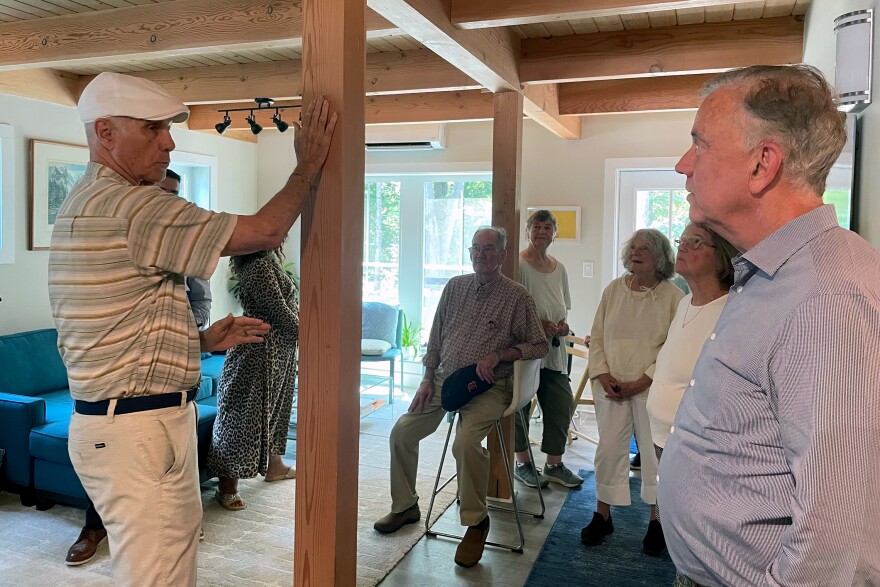Jay Gustafson, a resident of Guilford, joined up right away after learning about the reasonably priced, environmentally friendly homes being constructed in the community.
According to Gustafson, it was a sister-in-law who came across a notice stating that names were being gathered for an inexpensive housing project in Guilford. We answered, “Oh,” and raised our hands. We had recently moved here from California. We made progress on the list.
Gustafson and his spouse were able to move in last July after the finance was finalized prior to the construction of the house.
All of the homes in the Great Hill Cottage Community are prefabricated, built fast, and run on septic tanks and well water. Modular structures made it possible to construct homes at a reasonable cost, and the houses use heat pumps for electric heating and cooling, making them environmentally friendly.
The residences were designed to satisfy the requirements of the U.S. Department of Energy’s sNet Zero Energy Ready program.As a result, homeowners can save money because their homes can generate as much energy as they use.
In July, Gustafson’s electricity bill was less than $120, and during the winter, it was approximately $220.
In 2021, local nonprofit developer Green Planet Company started building the houses.
Developer Chris Widmer stated, “We jumped at the opportunity when this property became available shortly after we were incorporated in 2018.”
The neighborhood, which was formerly forest property, has seven houses. All of the homes in the community, Great Hill Commons, sold for less than $280,000, according to Widmer, and the development required clearing land and building a road.
Our main objective was to figure out how to construct cheap housing at a fair price, and I came up with a price that was on par with the typical construction technique, or stick framing, as Widmer put it. We wanted to do better, and I believe we can achieve it. If I didn’t say that, I would be lying. I believe that these expenses exceeded our initial projections.
Guilford has another cost-effective, environmentally friendly project in the works. For Green Planet Company’s upcoming project, the town intends to offer a piece of property on Saw Mill Road.
My suggestion is to construct six accessory dwelling units, one for each of the six properties, which would likewise be reasonably priced deed-restricted rentals, Widmer stated.
However, First Selectman Matt Hoey claims that Guilford’s lack of infrastructure prevents greater home development.
That’s the problem in places like Guilford. According to Hoey, the problem with cheap housing is density. We’re working in bite-sized chunks and doing what we can, but it’s really hard for us to reach the kinds of statistics that people are looking for.
In order to provide fire hydrant access, the town extended emergency water lines up to the new area using COVID-19 relief funds.
In order to facilitate greater developments, Guilford also loosened the rules governing septic systems.
At any given time, it appears nearly impossible for us to achieve meaningful progress. At its finest, government is incremental, right? “Hoey said.” We’re going to keep hanging on and doing what we can, a little bit here, a little bit there.






